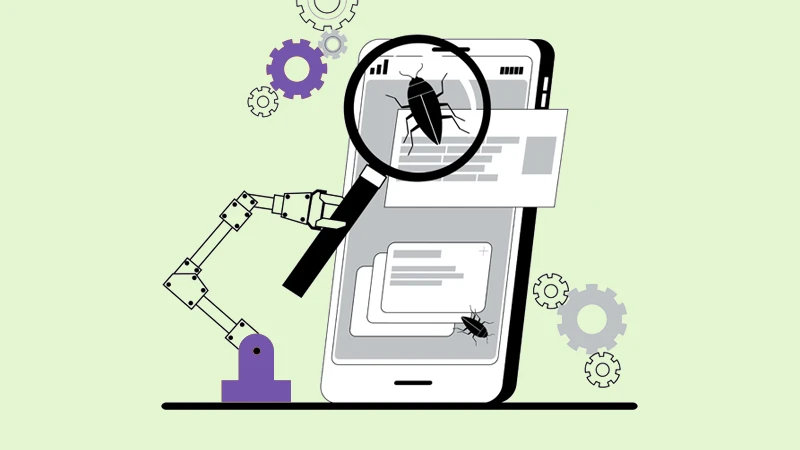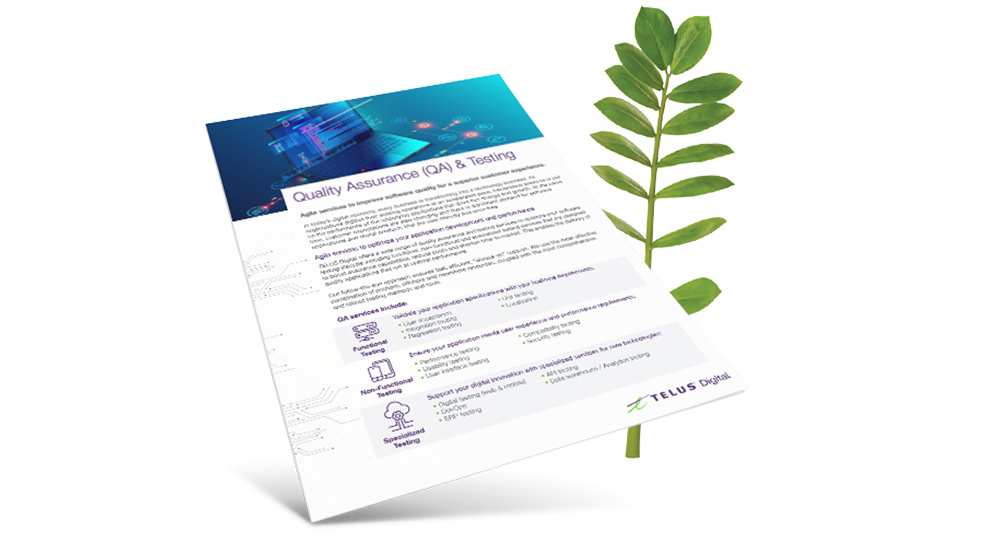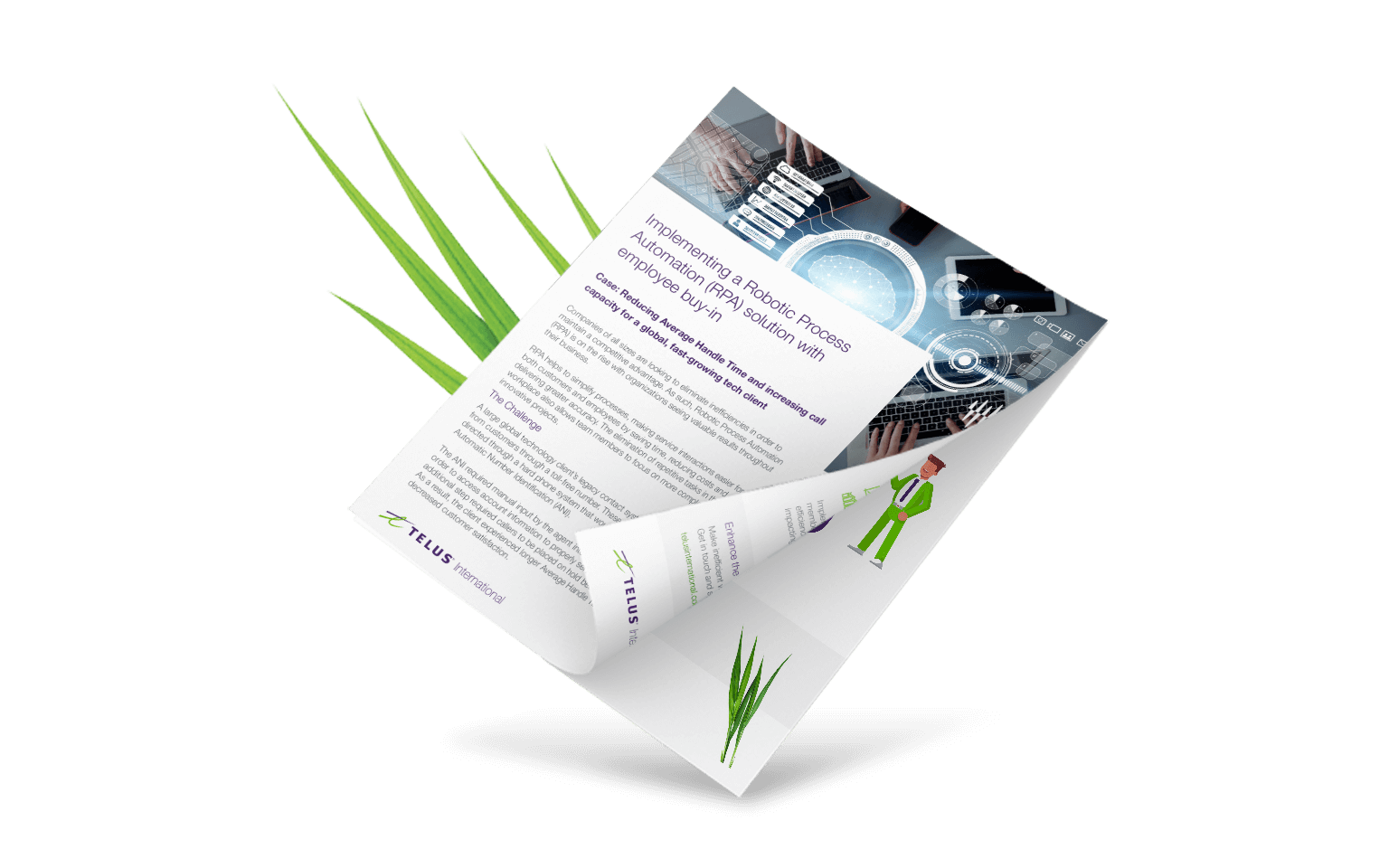Quality assurance (QA): Improving testing efficiency through automation

The extent to which the app market has grown in recent years is staggering. By the year 2023, more than 500 million digital apps and services will have been deployed, according to analyst firm IDC. And by 2025, 90% of apps will be cloud native and 80% will contain externally sourced code.
None of these apps could exist without quality assurance (QA). QA testing is vital to ensuring that your apps and code perform as intended and users are provided the best possible experience. Considering poor-quality software cost U.S. companies $2.08 trillion in 2020 according to the Consortium for Information and Software Quality, there’s no question that QA can have a tangible impact on your bottom line.
How can businesses improve their QA testing efficiency to ensure the functionality of their apps for consumers? Increasingly, the answer lies with automation.
Software testing challenges
Today’s enterprises face a number of QA and software testing challenges, as Kirsten Jepson, senior director of product marketing at TELUS Digital, knows well. “We’re seeing more app development than ever before,” says Jepson. As a result, she adds, “QA methodology needs to become faster, better and stronger than in the past.”
On the list of pain points: the rising cost of QA, smaller testing budgets and the need for faster testing. As the demand for IT quality has increased, so too has the pressure on companies to deliver flawless app executions. That makes for a hefty challenge when additional testing iteration cycles are required thanks to a shift to DevOps and agile methodologies.
DevOps, which combines software development and IT operations to remove barriers between teams, can shorten the system and product development lifecycle. A phase-based agile approach to product management can do the same. However, these strategies can have repercussions where apps are concerned.
“The concept,” Jepson explains, “is that more iterations get you where you want to go faster. But app updates can’t happen at top speed and with accuracy without a solid QA testing practice in place.” What’s more, if an app breaks, that can lead to a negative perception of your brand.
Whether they’re driven by DevOps, agile methodologies or the overall need to quicken the time to market, businesses must improve testing efficiency if they hope to keep pace with their competitors. That’s where automation comes in.
The benefits of automation testing
A balanced automation strategy requires technology, optimized processes and people — all of which provide significant benefits to companies and their customers, including lower costs and better app performance.
Prior to automation, Jepson says, people would have to “sit back and imagine the scenarios” for the data they were testing. It was up to them to determine which potential outcomes they should be testing against, and how. The slow and inefficient process has long been a thorn in the side of many organizations seeking to ramp up their app development programs.
With automation, QA tests can be run quickly, repeatedly and much more accurately than their manual counterparts. One way is by automating the testing process in an end-to-end testing ecosystem with the purpose of ensuring ongoing quality control as the code is modified.
If the software testing trends continue, companies’ use of automation will grow increasingly sophisticated, in large part because of artificial intelligence (AI), says Jepson. “Could properly trained AI through automation get us to a point where we’re not only predicting but pre-repairing or fixing something that’s come back as broken because an AI-based bot recognized it before it hit the market?” she asks. “We’re heading in that direction.”
Outsourcing for ongoing growth
All this automation talk may leave you wondering: Where do people come into play?
In fact, with the role of automation increasng in QA, humans-in-the-loop become even more critical to overcoming software testing challenges. “Some people think automation will take the human out of the equation, but it just brings more value to the human tasks,” says Jepson.
It’s through the strategic deployment of automation and human resources that companies can embrace the full value of intelligent automation.
Many organizations are working with outsourcing partners who not only possess the right technologies and high-quality software, but the experience as well. The knowledge that comes from years of working with other enterprises in the field is essential to the successful deployment and maintenance of new digital solutions. As Jepson notes, TELUS Digital can leverage its previous experience with similar industry players to identify the most relevant and effective testing scenarios.
Having a team of professional testers on demand is an important advantage in this marketplace, especially because it can help speed up your time-to-market, and allow you to scale up when the time is right. That’s as true for brand new app launches as it is for maintaining and improving your assets and solutions. With the right QA partner, you’ll be able to tap into their capabilities to test overnight and across time zones.
Ultimately, there’s a direct correlation between business success and the quality of your products. Improving testing efficiency for better QA can have an invaluable positive impact on your customer experience (CX).
Contact our team of digital IT experts to find out more about driving your CX success.



